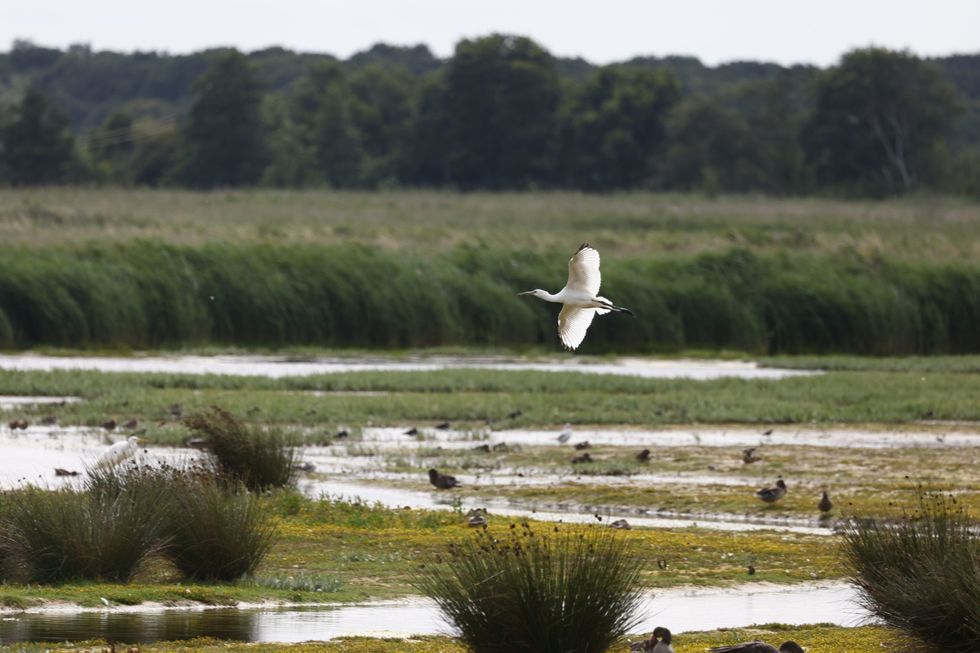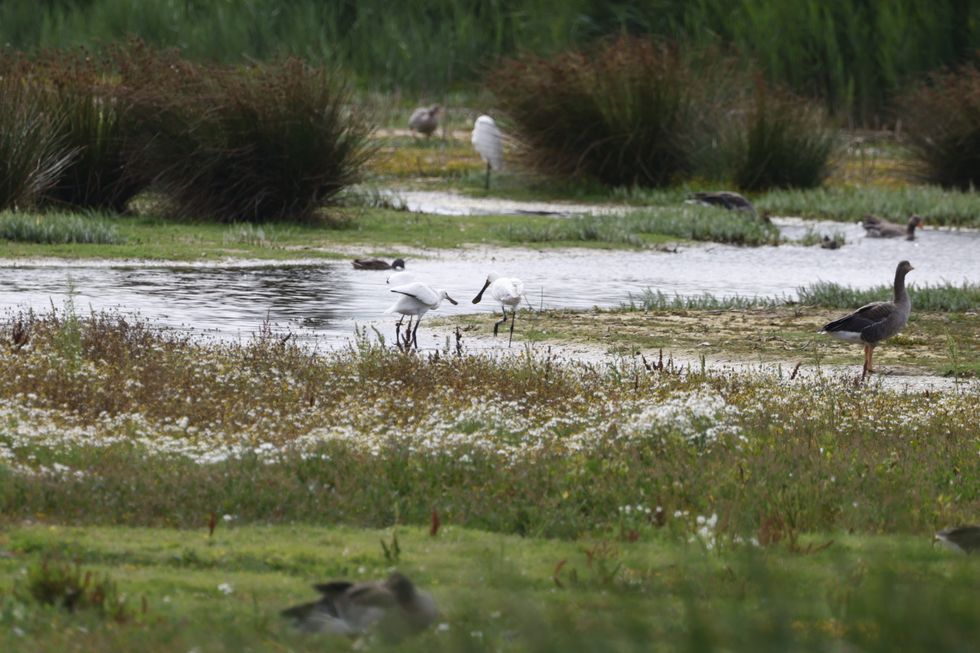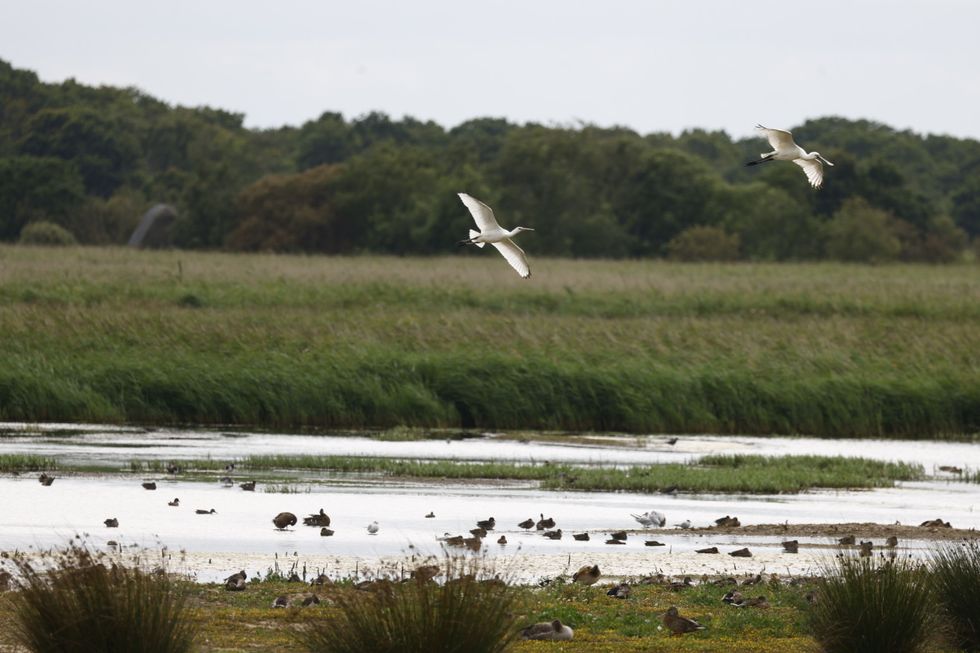Sam Russell
Aug 08, 2023

A fledgling spoonbill in flight (John Tallowin/Norfolk Wildlife Trust/PA)
A spoonbill chick has fledged on the Norfolk Broads for the first time since the 17th century, a conservation charity has said.
The large white heron-like species, which stands at 3ft tall and has a wingspan of 4ft, is of European conservation concern and a very rare breeding bird in the UK.
It gets its name from its long bill, which has a flat spoon-shaped tip.
Norfolk Wildlife Trust says that a spoonbill chick has successfully hatched at Hickling Broad and Marshes.
It said this is the first known breeding success of the species in the Norfolk Broads for around 400 years.
The charity credited the success to a combination of habitat management and an increasing population of the birds in Britain.

Robert Smith, Norfolk Wildlife Trust’s senior reserves assistant for Broads North, said: “It has been a privilege to monitor the spoonbills over the past few years at Hickling and now we can officially celebrate the return of a former lost breeding species to the Broadland landscape with the first fledged spoonbill here since the mid-17th century.
“Watching the fledgling flying around the reserve and hearing its trilling begging call as it pesters its parents for food is a truly wonderful sight and sound.
“It shows that our work to enhance the habitats on our reserves and across Norfolk is hugely important to the survival of our wildlife, including visitors such as the spoonbill.”
It is believed that there are just eight breeding sites in England, the trust said.
Spoonbill fledglings are known affectionately as teaspoons on account of their shorter bills.
They can also be identified by the black in their wing tips.

Fledglings at Hickling will commute between their nest in the trees and the pool at first, then move further afield when brave enough, before the family leave the nest for good and depart south.
Poole Harbour is a key wintering spot for Norfolk breeding spoonbills, the Norfolk Wildlife Trust said.
Top 100
The Conversation (0)













